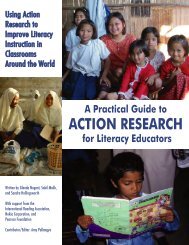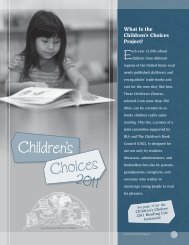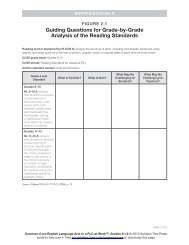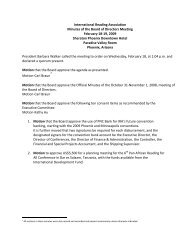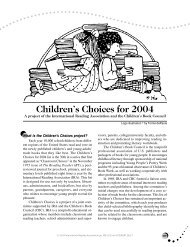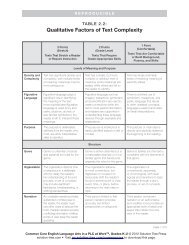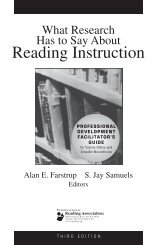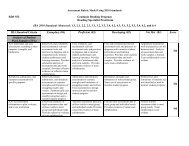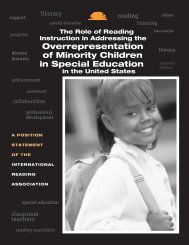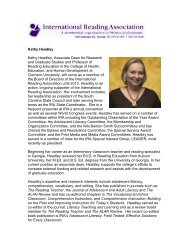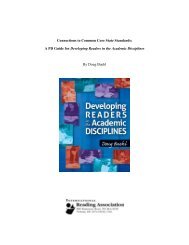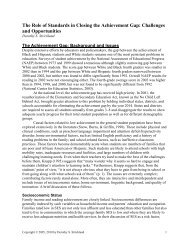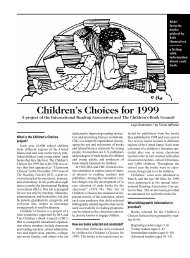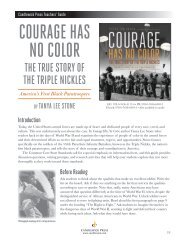Global Education Digest 2012 - International Reading Association
Global Education Digest 2012 - International Reading Association
Global Education Digest 2012 - International Reading Association
Create successful ePaper yourself
Turn your PDF publications into a flip-book with our unique Google optimized e-Paper software.
OPPORTUNITIES LOST: THE IMPACT OF GRADE REPETITION AND EARLY SCHOOL LEAVING<br />
FIGURE 25<br />
How large are primary school classes in sub-Saharan Africa?<br />
Average primary-level class size by grade in selected countries, 2010 or latest year<br />
90<br />
85<br />
Chad 85<br />
More than 50 pupils<br />
per class<br />
80<br />
75<br />
70<br />
65<br />
Burundi 65<br />
Madagascar 63<br />
Pupils per class<br />
60<br />
55<br />
50<br />
45<br />
40<br />
Mali 59<br />
Togo 57<br />
Rwanda 53<br />
Niger<br />
46<br />
Senegal<br />
Guinea 42<br />
55<br />
47<br />
39<br />
35<br />
35<br />
30<br />
Mauritius 31<br />
32<br />
30<br />
25<br />
20<br />
1 2 3 4 5 6<br />
Grade<br />
Note:<br />
The figure excludes multi-grade classes.<br />
Source: UNESCO Institute for Statistics database.<br />
are more costly and more difficult from a learning<br />
perspective. Early school leavers who exit school<br />
before acquiring basic literacy skills are more<br />
likely to remain illiterate if no specific intervention<br />
is developed for them. One of these interventions<br />
could be second-chance programmes. They can<br />
include adult literacy programmes, with or without<br />
the possibility of obtaining an equivalence for re-entry<br />
into the formal education system; or accelerated<br />
learning programmes for children in refugee camps in<br />
Tanzania and Kenya, for example, or for former child<br />
soldiers in Colombia, Liberia and Sierra Leone.<br />
Other examples of possible interventions include<br />
schools for life, as found in Ghana, which offer the<br />
equivalent of three years of primary school in nine<br />
months; ‘Educatodos’ programmes in the Honduras,<br />
which provide the six grades of the primary cycle<br />
in three years; SPARK (Skills, Participation, and<br />
Access to Relevant Knowledge) programmes<br />
in Zambia, where the seven grades of primary<br />
education are taught in four years; and catch-up<br />
programmes/classes in post-conflict countries such<br />
as Afghanistan, Burundi and Liberia.<br />
59



